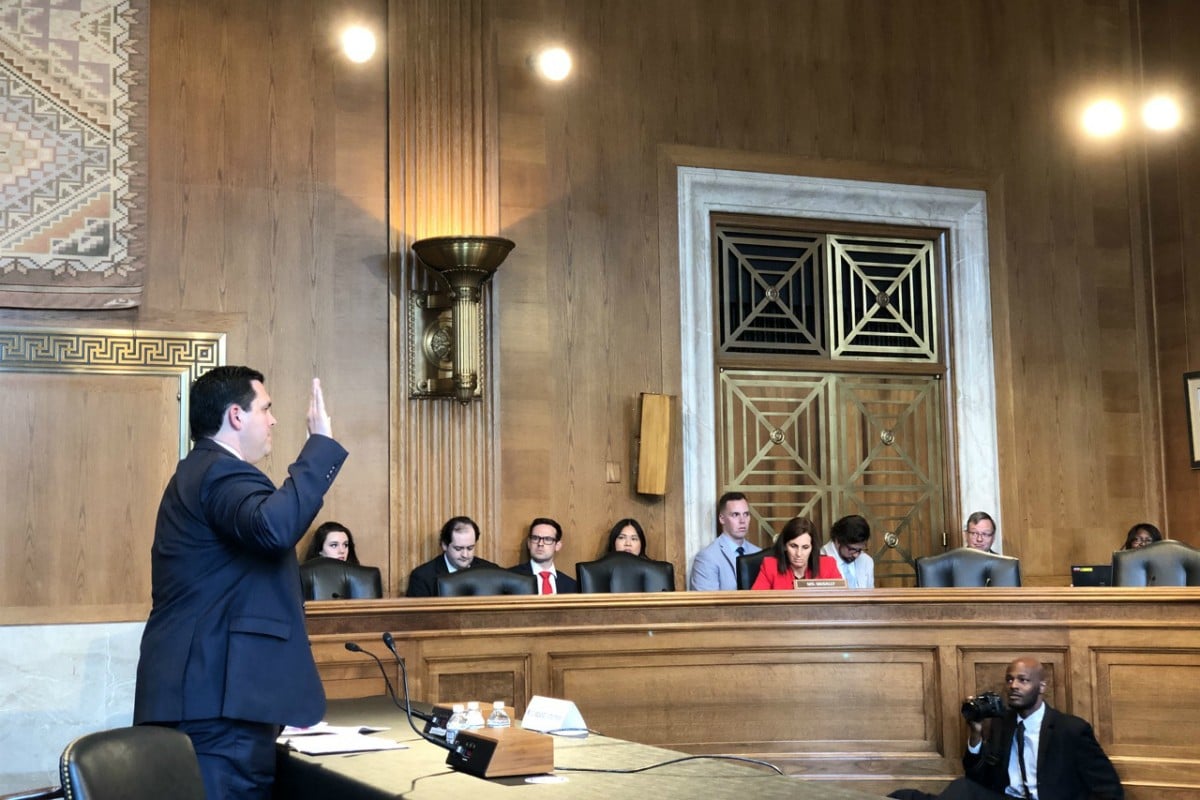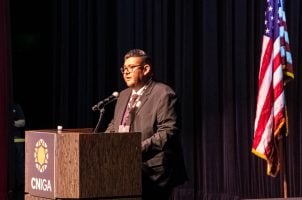President Trump National Indian Gaming Commission Chair Nominee Testifies Before Senate Committee
Posted on: July 28, 2019, 03:00h.
Last updated on: July 27, 2019, 10:33h.
National Indian Gaming Commission (NIGC) chair nominee E. Sequoyah Simermeyer testified before the US Senate Committee on Indian Affairs this week regarding his candidacy and goals for the federal organization should he be confirmed into the position.

Jonodev Osceola resigned as chairman from the NIGC in April. President Donald Trump picked Simermeyer to take the top role in June.
Appearing before the Senate committee, Simermeyer took questions on recent legal matters regarding Indian gaming, and also provided insight on what the NIGC would attempt to accomplish under his leadership.
Simermeyer told the committee that the four main areas he would focus are integrity, preparedness, accountability, and outreach. The primary mission is to strengthen the Indian gaming industry “through sound regulation and oversight.”
Headquartered in DC, the NIGC provides federal oversight to 290 Native American tribes that collectively own nearly 500 gaming establishments across the country. Tribal gaming generated more than $32 billion dollars in its latest fiscal year, and is the lifeblood for many of the sovereign communities that operate the venues.
State Issues
Simermeyer received praise from many Senate committee members for his vast knowledge of Indian gaming, and history working at the NIGC as an associate commissioner. But the nominee sidestepped a question from Sen. Tom Udall (D-New Mexico).
The Democrat asked Simermeyer for his position on a 2017 10th Circuit Court of Appeals ruling that concluded states don’t have a legal obligation to negotiate Class III gaming compacts under the Indian Gaming Regulatory Act (IGRA). Udall said “tribes are stuck” when state lawmakers refuse to consider compacts to allow the Native American groups to operate slot machines and table games.
IGRA only allows tribes to operate Class I and II gaming on their sovereign land – which includes bingo, pull tabs, punch boards, and non-banked card games. The tribal appeal argued that the federal government – specifically Congress – should be able to intervene when states won’t come to the negotiating table to grant the Native American groups Class III rights.
Simermeyer wouldn’t say whether he agreed with the ruling against the tribes, and cited ongoing litigation as reason for his abstinence.
NIGC Leadership
The National Indian Gaming Commission was formed with the passage of IGRA in 1988. The agency consists of three full-time members – a chair and two associates.
Should Simermeyer be confirmed as chair, he would be the first Republican-appointed leader of the NIGC in more than a decade. Tribal experts support his appointment.
I have known Sequoyah Simermeyer for years, and he has always been a fierce and compassionate advocate of Indian tribes,” Rory Dilweg, an attorney who specializes in Indian tribal governments, told Casino.org last month. “I expect he will remain so in his new position as chairman.”
University of Oklahoma College of Law Professor Gary Pitchlynn added, “He has a great deal of experience working with Congressional staff and tribes and can provide strength and credibility to the commission’s relationship with both.”
Related News Articles
US House Passes Bill Ratifying Catawba Tribe’s North Carolina Gaming Rights
Most Popular
This Pizza & Wings Costs $653 at Allegiant VIP Box in Vegas!
Sphere Threat Prompts Dolan to End Oak View Agreement
MGM Springfield Casino Evacuated Following Weekend Blaze
Fairfax County Officials Say No NoVA Casino in Affluent Northern Virginia
Most Commented
-
VEGAS MYTHS RE-BUSTED: Casinos Pump in Extra Oxygen
— November 15, 2024 — 4 Comments -
VEGAS MYTHS RE-BUSTED: The Final Resting Place of Whiskey Pete
— October 25, 2024 — 3 Comments -
Chukchansi Gold Casino Hit with Protests Against Disenrollment
— October 21, 2024 — 3 Comments
















No comments yet